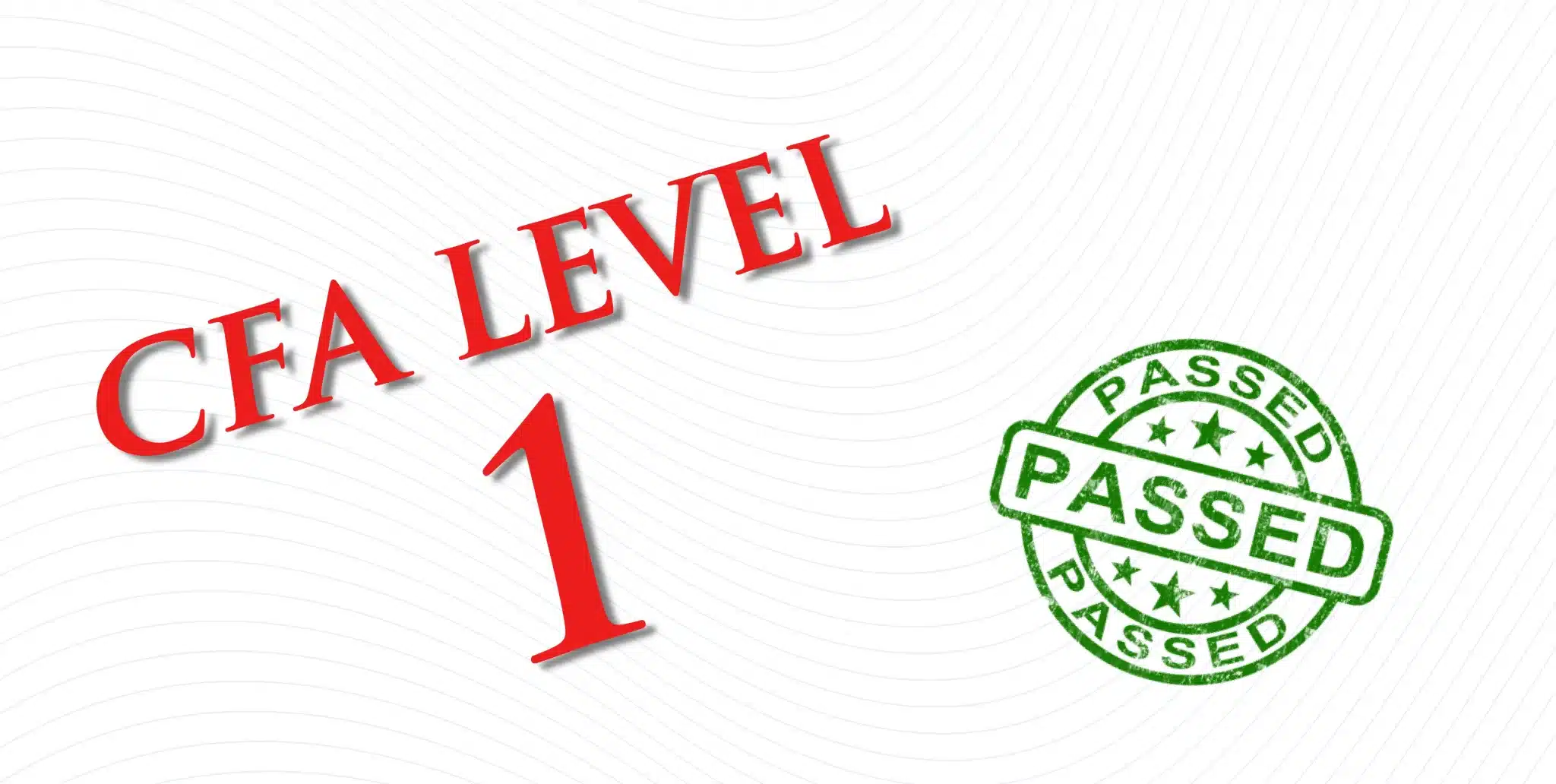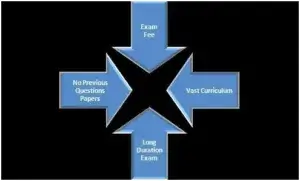Clearing Level I of the CFA® Program exam at the first attempt

Here's What We've Covered!
Written by a candidate who cleared all the three exams in 18 months time
The first question a CFA student will ask me when he calls up to ask for the Level I training is, “will I be able to clear the exam in the first attempt”. My answer has always been “Of course, you will, if you want to”. And if you are a dedicated student, you will not disagree once you have cleared your Level I in the first attempt.
The pressure to clear the prestigious CFA® Program exam in the first attempt is a big pressure that almost all the students face and this pressure is justified with all the time & money spent on it. Compared to exams in India like the exam conducted by the Institute Of Chartered Accountants, India which charge exam fees in the range of Rs 2000- Rs 3000, the exam is indeed quite expensive. So is the exam fee the only pressure? The answer is a clear no. CFA Institute also does not disclose the exam papers, which makes it even difficult for the student to get to know in advance, how the exam feels. Top that up with a vast curriculum & a freaking 6 Hours exam to be taken in one day, it is sure to scare the heck out of you.
Challenges for level I Exam
- By now, you may be irritated too because of the negative start. But hey, I wanted your attention. So now that you know the challenges ahead we can together tackle them and make this exam as smooth as it actually is.
Before we start, it is important that you know that 2 out of 5 test takers pass the exam. Yes, you heard it right. The pass percentage is close to 40% which is quite high in comparison to most of our coveted Indian exams (think CAT, CA, IIT-JEE, etc.)
- START EARLY:
Start as early as possible, it is recommended that you almost have six months in hand to prepare for the exam. The reason for you to start that early is so that you get adjusted with the curriculum and you get a view of what lies ahead of you in the first month. So if you are planning for the June attempt then plan to start studying by November end. If you are planning for Dec attempt then start studying by may end. - MAKE A MONTHLY SCHEDULE:
Before you jump and start preparing a weekly schedule for the entire six months, work backwards and set objectives for each of the four months. First and the last month can be left out because in the first month, you won’t get too adjusted with the curriculum and the last month is to be spent mostly on solving test papers or revision. - SET WEEKLY GOALS: Now that you have made your broad monthly goals, you need to dig in and make realistic weekly goals. If you have planned to complete high weight subjects in the second month, then how do you plan to go about it? Example: If I Plan to complete FRA in 20 Days, I need to finish maybe 3 Readings a week.
- FOCUS ON UNDERSTANDING THE CONCEPTS
Close to 90% of the curriculum involves knowing and understanding concepts. Applications from the concepts are fairly simple once you are familiar with the concepts. For example, if you understand the philosophy behind Time Value of Money then handling questions on “Annuity Due” will be straightforward. - A LOT OF QUESTIONS:
When I was preparing for my CFA LEVEL 1 exam, I had done close to five thousand questions. It’s not difficult, trust me! Even if you do 30 questions per day, you would end up doing 5400 questions by the time you sit for the exam. Some candidates don’t clear the exam because they haven’t done enough practice so there is a high chance that you would thank me for this advice later on. No prep provider can give you the exact material that will make you pass, and no matter what they say, ultimately it’s all upon you. So my advice is practice almost 5400 questions, leaving the mock papers. - REVISE WITH QUESTIONS FOR THE SUBJECT YOU COMPLETED:
Once you finish with one subject and start studying the next subject, then revise the previous subject with questions. This will increase your confidence immensely and the concepts will get registered in your mind permanently.
For example: Let’s say, you finished FRA and you start with equity. You can start doing at least 5 questions on FRA. When you finish Equity start doing 10 Questions on Equity & FRA both & so on. - ETHICS:
Start with Ethics close to two months before the exam and study from the original CFA material. If you read that well you will actually recognize questions in the actual paper that originate from the CFA material. - AIM TO SOLVE AT LEAST 10 FULL-LENGTH PAPERS EXAM-CONDITION
You will reach this stage only if you have followed all the above 7 pieces of advice that I have given you. If you manage to do this last step, I am giving you the guarantee that you will feel confident before you enter the exam hall, as well as when you leave. - REVISE ALL CONCEPTS IN THE LAST WEEK
Remember this exam is focused on knowledge first and application later. So keep revising all your concepts right till the end. - PLAN YOUR EXAM DAY
Do some research on your exam venue. Are there good dining options nearby? Are there ENOUGH dining options? There will be numerous students besides you on that exam day and you do not want to be hungry or thirsty for your second paper. You may want to carry some sandwiches and water with you (besides your calculator ;) ) for the exam. - DO NOT SPEND TOO MUCH TIME ON ANY QUESTION DURING THE EXAM
The exam is designed to keep you nervous, but the objective is to clear the exam. There will be questions that you won’t know that’s fine, just move onto the next question. But remember there is no negative marking so do come back and attempt each of those questions at the end to the best of your ability. - THE WAIT
This is undoubtedly the toughest thing to do, but don’t worry the difficult part is over.Keep your focus from the beginning on learning rather than clearing the exam. The advice that I just gave you is given keeping in mind that you keep your focus on learning. Do not ever try to memorize anything, unless really required. Try to mix the learning with some real-life examples and real-life situations in the investment industry.
CFA Institute does not endorse, promote, or warrant the accuracy or quality of the products or services offered by IMS Proschool. CFA® Program exam are trademarks owned by CFA Institute.
Resent Post
>
Best Study Abroad Courses for Commerce Graduates
>
Emerging commerce career options in India (2026): From CA to Data Analyst
>
ACCA Opportunities You Didn’t Know About – Think Beyond Audit!
>
Which Courses After 12th Commerce With High Salary Are in Demand Worldwide?
>
How to Find ACCA Jobs Online After Qualifying: Real Portals, Tips & Career Guidance
Follow Us For All Updates!





